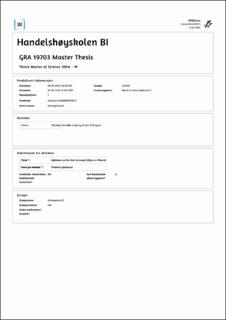| dc.description.abstract | This paper examines the impact of inflation on wealth distribution in the United States. Through a synthesis of empirical findings and economic theory, we undertake a comprehensive analysis of how inflation influences the balance sheets
across the wealth distribution in the US. Our study entails the determination of inflation sensitivity across various wealth percentiles, followed by a comparative assessment. The relative magnitude of this measure serves as a determinant of the resulting shape assumed by the wealth distribution in the face of inflationary pressures. Our investigation reveals a U-shaped pattern in the aggregate duration across the wealth distribution. Specifically, it indicates that individuals at both ends of the wealth spectrum, namely the wealthiest and the poorest, exhibit the highest degree of sensitivity to changes in inflation. In contrast, the middle percentiles demonstrates comparatively lower sensitivity to inflationary fluctuations. | en_US |
